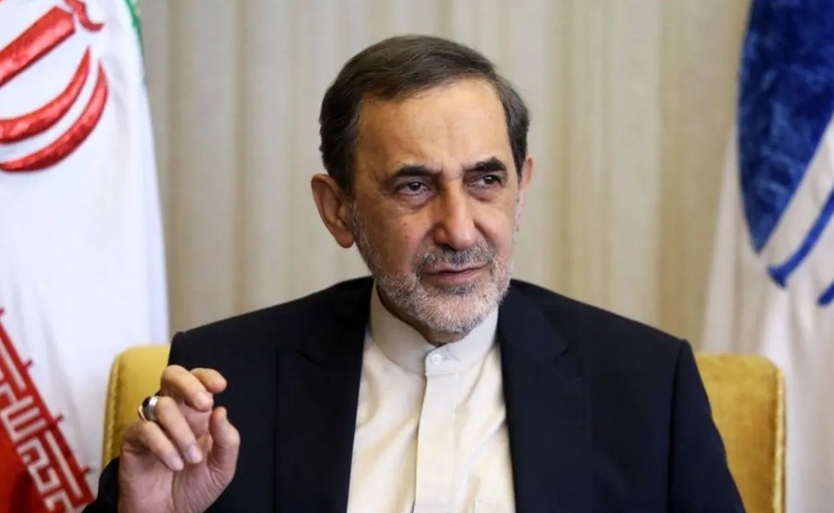SAEDNEWS: Ali Akbar Velayati dismisses Donald Trump’s claim of leasing the ‘Zangezur Corridor’ as a geopolitical farce, emphasizing Iran’s firm opposition to any border changes in the sensitive South Caucasus region and reaffirming support for Lebanon’s Hezbollah and Iraq’s Popular Mobilization Forces against US disarmament plans.

According to Saed News, Ali Akbar Velayati, Adviser to the Supreme Leader of Iran on International Affairs, in an exclusive interview with Tasnim News Agency, responded to a question regarding recent actions by Donald Trump, former US President, concerning the so-called "Zangezur Corridor" and Trump’s claim that he leased this passageway for 99 years.
Velayati retorted, “Is the South Caucasus an ownerless region for Trump to lease it? The Caucasus is one of the world’s most sensitive geopolitical areas, and this corridor will not become a passageway in Trump’s ownership, but a graveyard for Trump’s mercenaries.”
He emphasized Iran’s consistent opposition to the formation of any so-called Zangezur Corridor, explaining that this corridor changes the region’s geopolitical landscape, shifts borders, and is designed to facilitate the disintegration of Armenia.
Referring to Iran’s firm measures to oppose the conspiratorial project, Velayati said that when Turkey and Azerbaijan insisted on constructing this corridor, the Islamic Republic of Iran’s military forces, under the command of the late General Baqeri (then Chief of Staff of the Armed Forces), conducted multiple military exercises in northwestern Iran to demonstrate the country’s preparedness and seriousness in preventing this plan.
Velayati stressed that “the idea of leasing the corridor by another country is naive, and Trump is playing the fool.” He compared the claim of leasing a corridor on the other side of the world to someone renting the Panama Canal, calling it an impossible statement that will never materialize.
He continued, “Trump, as always, speaks flashy but empty words. He thinks he runs a real estate agency and wants to lease land or territory!”
Regarding security in the South Caucasus, Velayati asserted that whether with or without Russia, Iran will act to prevent threats to the region’s security. He noted that the Armenian people strongly oppose the corridor plan that leads to the partition of Armenia, stating, “No nation willingly agrees to the division of its homeland, even if their government unfortunately takes unstable positions.”
Mentioning Armenian Prime Minister Nikol Pashinyan’s prior visit to Iran, Velayati said Pashinyan agreed with Iran’s stance and opposed the corridor, recognizing the clear and conspiratorial harms of the plan.
Recalling that the corridor’s construction would alter Iran’s northern and northwestern borders and limit Iran’s access routes to Turkey, he said that this plot threatens South Caucasus security, and Iran maintains that it will work to secure the region with or without Russia’s cooperation, adding that Russia is also strategically opposed to the corridor.
Responding to American claims that the corridor would facilitate energy transit from the Caspian Sea, Velayati reminded that the Caspian is a semi-enclosed sea belonging solely to its littoral states, and any passage of oil or gas requires the agreement of all neighboring countries. He referenced recent joint Iran-Russia naval exercises in the Caspian Sea, sending a clear message that any outsider attempting unauthorized actions will face resistance.
Velayati underscored that the corridor is not merely a commercial passage but a political conspiracy against Iran and some neighboring countries. He warned that besides Turkey—a NATO member—other NATO countries seek presence in the region, aiming to insert NATO as a “venomous snake” between Iran and Russia, a move Iran will not allow.
He cited Russian President Vladimir Putin’s statements about Ukraine and NATO, saying similarly, Iran will not permit NATO’s approach to its northern borders, insisting “prevention is better than cure.”
On the necessity of a corridor between Nakhchivan and Azerbaijan, Velayati said no corridor is required, as they can connect through Iranian territory. He stressed that regional equations extend beyond Azerbaijan and Armenia, involving Iran’s borders and interests, which Iran will defend strongly.
Velayati addressed recent developments in Lebanon and a political move by part of its government to disarm Hezbollah, a plan orchestrated by the US and Israel. He stated such proposals are nothing new and have historically failed, and will fail again as Hezbollah now has stronger popular support and resources.
He emphasized Hezbollah’s broad acceptance across Lebanese society—Christians, Shia, Sunnis alike—and called resistance the dignity, life, and security of Lebanon. He reminded that before Hezbollah’s formation, Israeli forces reached southern Beirut and the Dahieh area in 1982 but were eventually pushed back by Hezbollah.
He further explained that despite the assassination of figures like martyr Sayyed Hassan Nasrallah, Hezbollah’s core remains powerful, even more so than in 1982 and 1983. Hezbollah protects Lebanon from Israeli aggression, and Iran supports it firmly.
Velayati questioned Lebanese politicians promoting disarmament, asking who would defend Lebanese lives and honor if Hezbollah laid down its arms, stressing past experiences should be lessons.
He warned that this process is driven by US and Israeli ambitions to impose a ‘Joulani’ figure (a reference to a Syrian opposition leader) in Lebanon, but such a dream will never materialize as Lebanon will stand firm. Iran opposes Hezbollah’s disarmament and continues supporting Lebanon’s resistance.
Responding about similar conspiracies against Iraq’s PMF, Velayati mentioned a recent phone conversation with former Iraqi Prime Minister Nouri al-Maliki, whom he praised as brave. Maliki affirmed that the US and Israel plan next to target Iraq’s PMF, but both Iran and Iraq oppose disarming PMF and Hezbollah and will resist.
He noted that without PMF, the US would dominate Iraq, similar to how Hezbollah prevents Israeli dominance in Lebanon.
Velayati called Yemen a jewel of the resistance axis, praising Yemeni forces for controlling the strategic Bab al-Mandeb strait and opposing US, UK, and Australian plans with missile attacks forcing the US aircraft carrier Harry Truman to retreat under Trump’s orders.
He stated Yemeni forces have cornered Israel and the US, with the resistance poised for future success.

